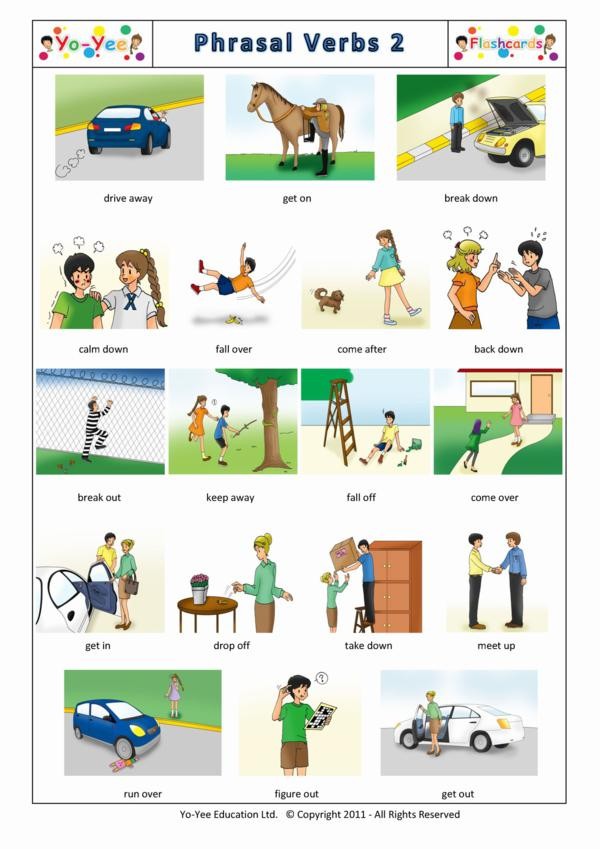English List Of Verbs Dictionary
Verbs are words that show an action (sing), occurrence (develop), or state of being (exist). Almost every sentence requires a verb. The basic form of a verb is known as its infinitive. The forms call, love, break, and go are all infinitives. Almost all verbs have two other important forms called participles. In the attached irregular verb list, you'll find an alphabetical list of verbs whose present and past. Irregular verbs are an interesting branch of the English tree.
List Of Verbs Dictionary
• • • constitute one of the main in the. Like other types of words in the language, English verbs are not heavily. Most combinations of,, and are expressed, using constructions with.
Little Explorers Picture Dictionary (English/Spanish): Verbs. EnchantedLearning.com is a user-supported site. As a bonus, site members have access to a banner-ad-free version of the site, with print-friendly pages. English-German online dictionary developed to help you share your knowledge with others. More information! Contains translations by TU Chemnitz and Mr Honey's Business Dictionary (German-English). Thanks on that account! Links to this dictionary or to single translations are very welcome! Questions and Answers.
Generally, the only inflected forms of an English verb are a third person singular form in -s, a (also called ), a (which may be the same as the past tense), and a form ending in that serves as a. Most verbs inflect in a simple fashion, although there are about 200; the irregularity in nearly all cases concerns the past tense and past participle forms. The verb be has a larger number of different inflected forms, and is highly irregular. For details of the uses of particular verb tenses and other forms, see the article. Sonar home studio free download. For certain other specific topics, see the articles listed in the adjacent box.
Main article: The past tense, or, may be formed regularly or irregularly. With regular verbs, the past tense is formed (in terms of spelling) by adding -ed to the base form ( play → played).


Normal rules for adding suffixes beginning with a vowel apply: If the base form ends in e then only d is added ( like → liked); if the base form ends in a consonant followed by y then the y is changed to i before adding the ending ( try → tried; an exception is the verb (a ball), which can form skied or skyed). Various rules apply for. If the base form ends in a single vowel followed by a single consonant (except h, silent t, w, x and y), then unless the final syllable is completely, the consonant is doubled before adding the -ed ( ship → shipped, but fathom → fathomed).
For most base forms ending in c, the doubled form used is ck, and this is used regardless of stress ( panic → panicked; exceptions include zinc → zincked or zinced, arc → usually arced, spec → specced or spec'ed, sync → sometimes synched). In, the doubling of l occurs regardless of stress ( travel → travelled; but paralleled is an exception), and when two separately-pronounced vowels precede the l ( dial → dialled, fuel → fuelled). If the final syllable has some partial stress, especially for compound words, the consonant is usually doubled: backflip → backflipped, hobnob → hobnobbed, kidnap → kidnapped etc. In some cases both alternatives are acceptable, e.g. Dialog → dialogued or dialogged, gambol → gambolled, hiccup → hiccupped or hiccuped, program → programed or programmed. Note however catalog → cataloged, pyramid → pyramided, format → formatted (but combat → combat(t)ed). Other variations not entirely consistent with these rules include bus → bused or bussed, bias → biased or biassed and focus → focused or focussed,.
English List Of Verbs Dictionary List
The pronunciation of the past tense ending follows similar rules to those for the third person present tense ending described above: if the base form ends in /t/ or /d/ then a new syllable /ɪd/ or /əd/ is added (as in drifted, exceeded); if the base form ends in an sound other than /t/ then the ending is pronounced /t/ (as in capped, passed); otherwise the ending is pronounced /d/ (as in buzzed, tangoed). Consequently, in the 17th and 18th centuries, the latter two pronunciations were routinely spelled -'d, but -ed was later restored. For the past tense of irregular verbs, see. Some of these can be classed as, such as sing (past sang), while others are weak verbs with irregularly pronounced or irregularly spelt past forms, such as say (past tense said /sɛd/). The verb be has two past tense forms: was (first and third person singular) and were (plural and second person).